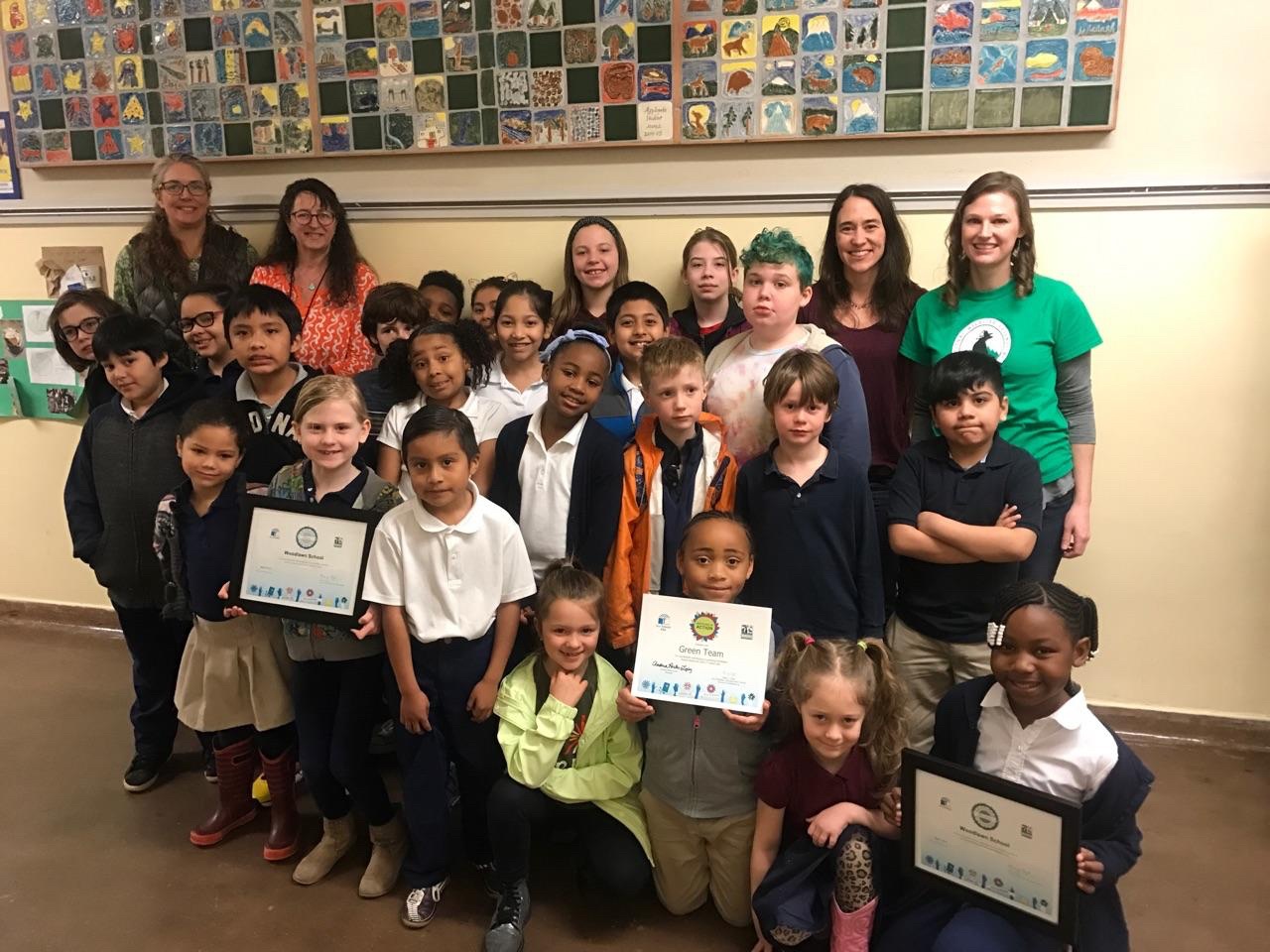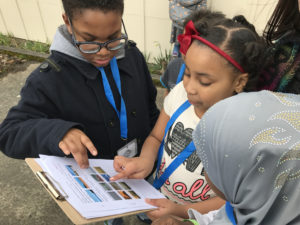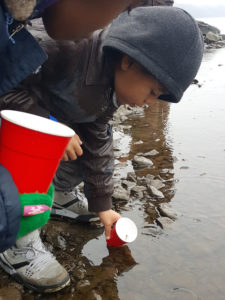We have much more to do and your continued support is needed now more than ever.
Full STEAM ahead for the Woodlawn Wildcats

How do you transform a school? It takes a village. Or rather a school and neighborhood community that’s pumped for progress! And that’s what the Green Team at Woodlawn School (PK-5) in Portland, Oregon is helping to do through their commitment of “Don’t be mean, be GREEN.” These students are putting the “wild” back in Wildcats with a growing movement of positivity and sustainability.
It wasn’t always this way though. A Title 1 school, Woodlawn has traveled a rocky road. From almost having its doors closed because of low enrollment and an outdated building; to then receiving a federal School Improvement Grant in 2014; and now becoming a STEAM (Science, Technology, Engineering, Art, and Math) school and participating in the National Wildlife Federation’s (NWF) Eco-Schools USA program as well as GLOBE (Global Learning and Observations to Benefit the Environment); the Woodlawn Wildcats are STEAMing ahead.
With a planetary focus, Woodlawn School is encouraging students to learn about the planets and stars above them, as well as to be green on their own planet and connect their studies with scientists and experts in the field – all to encourage problem-solving, critical thinking, and create inquisitive minds needed for technology based careers of the future.

Assisted by champions like STEAM Consultant Dr. Jamie Repasky, Principal Andrea Porter-Lopez, teachers like Kim Howard, supportive parents, and other school staff and community partners, Woodlawn School has passionate eco-cheerleaders behind it.
Students are leading the effort however, with staff and parents content to be a “guide on the side.” The Green Team wrote their own letter to the district asking for new recycling bins that they then decorated to make waste reduction fun and easy. With help from staff at Portland Public Schools, Woodlawn completed an Eco-Schools USA waste audit this past February to measure and analyze their current trash and recyclables being produced. Those results prompted an action plan with activities like cleaning up litter during “Recess Rescue,” improving recycling signage, and reducing the amount of uneaten and wasted food going into the garbage.
During a school-wide assembly in April, an NWF representative presented Woodlawn with a Bronze and a Silver Award for their sustainability work on the Eco-Schools USA Consumption and Waste and Biodiversity pathways. Now the Green Team is fired up to earn a Green Flag Award by tackling their 3rd pathway – Energy. With a goal to reduce the monthly energy bill by $100, these students are on a mission to “turn off the lights” and de-lamp unneeded light bulbs across the school.
The Eco-Schools USA and GLOBE programs are not only helping Woodlawn provide STEAM opportunities for teachers to meet Next Generation Science Standards, they’re impacting student learning in a positive way. The Green Team, which is made up of 1st-5th graders that were nominated by their teachers, is further empowering other students by rewarding them with green bracelets for doing good things.
As Dr. Repasky explains,
“Joining the GLOBE program and starting the Green Team has been a great tool to empower our students. And because of the positive energy of the students, more of the staff are starting to get involved as well. I couldn’t be happier!”
After registering to become an Eco-School during the summer of 2016, several teachers at Woodlawn then became GLOBE trained to engage students in citizen science by integrating school sustainability with earth system’s observations, data collection, and eco-action. Ms. Howard’s 3rd grade class has been especially busy. Through GLOBE’s earth system protocols and a new weather station, students are learning about cloud cover, temperature, precipitation, and pH – and sharing their real-world data with NASA and NOAA. A recent visit from staff of the Oregon Museum of Science and Industry (OMSI), transported students to space through a portable planetarium of stars, moons, and neighboring planets.

Not only are Woodlawn students looking to the faraway stars and learning what it takes to be an astronaut, they’re looking into our local streams too – drawing parallels between watershed health, biodiversity, and salmon habitat. Since 2015, Woodlawn’s 4th and 5th graders have been raising Salmon in the Classroom with the US Fish and Wildlife Service (USFWS). After raising Chinook salmon eggs for 2 months this past winter – watching them hatch and grow into alevin and then fry while also conducting water quality tests along the way – the students released 100 fry into the Columbia River to swim away, grow big, and eventually migrate to the ocean. A tour of a local fish hatchery and getting to sink their hands in salmon carcasses for some slimy dissection provided an opportunity to learn about anatomy, lifecycle, and adaptations of this important threatened species. Best of all, their adventures including live streaming of the tank were captured on video!
One school, one planet, and a next generation with infinite possibilities.





















